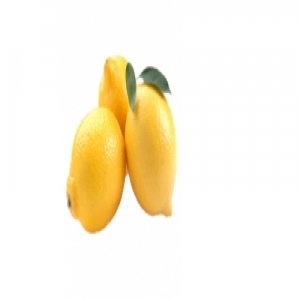If you have an account with us, please log in.
Lemon is a rich source of vitamin C, providing 64% of the Daily Value in a 100 g reference amount (table). Other essential nutrients are low in content.
Lemons contain numerous phytochemicals, including polyphenols, terpenes, and tannins. Lemon juice contains slightly more citric acid than lime juice (about 47 g/l), nearly twice the citric acid of grapefruit juice, and about five times the amount of citric acid found in orange juice.
Juice
Lemon juice is used to make lemonade, soft drinks, and cocktails. It is used in marinades for fish, where its acid neutralizes amines in fish by converting them into nonvolatile ammonium salts. In meat, the acid partially hydrolyzes tough collagen fibers, tenderizing it. In the United Kingdom, lemon juice is frequently added to pancakes, especially on Shrove Tuesday.
Lemon juice is also used as a short-term preservative on certain foods that tend to oxidize and turn brown after being sliced (enzymatic browning), such as apples, bananas, and avocados, where its acid denatures the enzymes.
Peel
In Morocco, lemons are preserved in jars or barrels of salt. The salt penetrates the peel and rind, softening them, and curing them so that they last almost indefinitely. The preserved lemon is used in a wide variety of dishes. Preserved lemons can also be found in Sicilian, Italian, Greek, and French dishes.
The peel can be used in the manufacture of pectin, a polysaccharide used as a gelling agent and stabilizer in food and other products.
Oil
Lemon oil is extracted from oil-containing cells in the skin. A machine breaks up the cells, and uses a water spray to flush off the oil. The oil/water mixture is then filtered and separated by centrifugation.
The 'Bonnie Brae' is oblong, smooth, thin-skinned and seedless. These are mostly grown in San Diego County, USA.
The 'Eureka' grows year-round and abundantly. This is the common supermarket lemon, also known as 'Four Seasons' (Quatre Saisons) because of its ability to produce fruit and flowers together throughout the year. This variety is also available as a plant to domestic customers. There is also a pink-fleshed Eureka lemon, with a green and yellow variegated outer skin.
The 'Femminello St. Teresa', or 'Sorrento' is native to Italy. This fruit's zest is high in lemon oils. It is the variety traditionally used in the making of limoncello.
The 'Yen Ben' is an Australasian cultivar.


